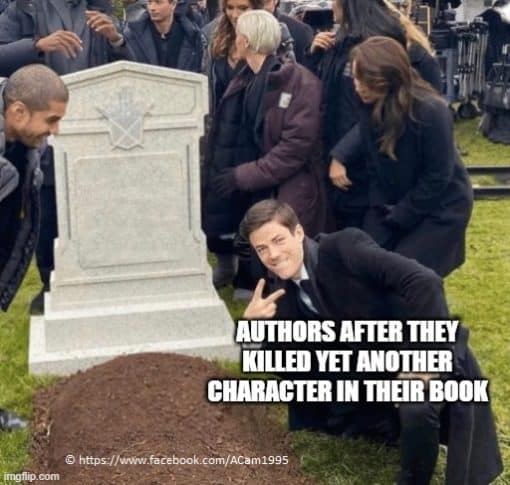Book Memes
RANKING FOR BEST Book Meme
Welcome to “Book Memes” on TopYoular.com – your quintessential haven for everything hilariously literary! As the curator and voice behind this unique corner of the internet, I’m thrilled to introduce you to a world where the written word meets wit in the most delightful manner. Here on “Book Memes,” my mission is simple: to infuse your day with laughter and a deeper appreciation for books through the universal language of memes.
Whether you’re a voracious reader, a casual book lover, or someone who savors the scent of freshly printed pages, you’ll find something here that resonates. From classic literature to contemporary bestsellers, no page is left unturned in my quest to bring you the most entertaining and relatable memes. Think of me as that well-read friend who can always make you laugh with an impeccably timed literary reference, only I’m here 24/7, constantly updating our collection to ensure there’s always something new to tickle your funny bone.
Navigating through “Book Memes,” you’ll encounter a diverse array of content that playfully explores the many facets of the reading experience. Ever felt the existential despair of waiting for the next book in your favorite series to be released? Or the peculiar sense of accomplishment that comes from correctly organizing your bookshelf by color? How about the internal debate of whether to lend a treasured novel to a friend, knowing it might return with dog-eared pages (or worse, not return at all)? Here, we transform those moments into a shared laughter that bonds us as a community.
But “Book Memes” isn’t just about the chuckles and giggles; it’s a celebration of literature and its power to evoke emotions, foster imagination, and even shape our identities. Through humor, we explore the profound impact books have on our lives, creating a space where anyone, regardless of their reading preferences, can feel understood and appreciated.
So, if you’re looking to brighten your day with a blend of humor and heart, “Book Memes” on TopYoular.com is your go-to destination. Dive in, and let’s revel in the joy that books and memes alike bring to our lives. After all, in the words of a wise person, “A day without laughter or reading is a day wasted.” And here, my friends, we waste no time at all. Welcome to our literary laugh fest – I can’t wait to share it with you.
